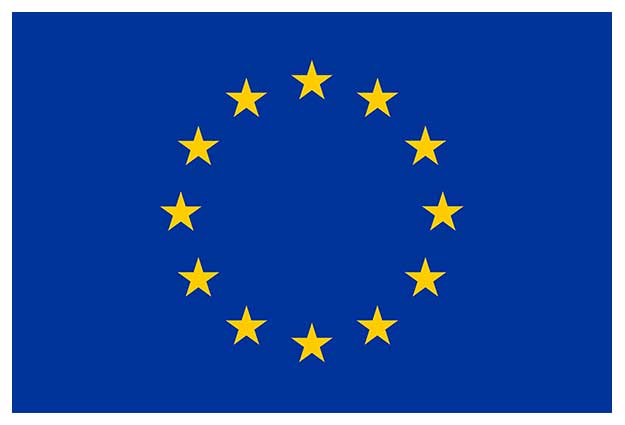The EPPO database on Diagnostic Expertise provides an inventory of the diagnostic
expertise available in the EPPO region. Its aim is to cover the expertise on
regulated pests and their look-alikes (i.e. pests of EPPO A1 and A2 Lists, pests mentioned in EPPO
Standards PM4: Production of Healthy Plants for Planting or in EPPO Standards PM7: Standards on Diagnostics, pests regulated in EPPO member countries and in the EU, EAEU quarantine pests), pests possibly presenting
a risk to EPPO member countries (EPPO Alert List) and plants of the EPPO or EU lists of
invasive alien plants, but it does not include common pests that are widely
distributed in the EPPO region. The database also provides an inventory of
validation data (as referred to in PM7/98) for tests targeting the above-mentioned
pests and a list of Proficiency Test (PT) offers for diagnostic laboratories in the EPPO region.
The database contains the following sections on:
The EPPO Secretariat is maintaining the database but please note that all
information
included in the database is based on individual expert's own declarations of
their
expertise.
At the EPPO Conference on Diagnostics held in April 2004 in Noordwijkerhout (NL), it was stressed that the decrease of knowledge in plant protection which was currently observed could seriously jeopardize the implementation of European phytosanitary regulations with respect to regulated pests. In particular, the importance of maintaining the diagnostic expertise in Europe was underlined. The EPPO Council in September 2004 agreed on the text of an emergency declaration on Plant Health Endangered (also known as the 'Madeira declaration').
The Panel on Diagnostics then considered that it was necessary to identify practical actions which could be undertaken by EPPO to improve collaboration on diagnostics in Europe and to provide good scientific support for the diagnostic work of National Plant Protection Organizations (NPPOs). It was suggested that the EPPO Secretariat should send a questionnaire to its member countries, to make an inventory of the available expertise on diagnostics in Europe (laboratories performing diagnostics, training capacities, individual experts, pests diagnosed, and methods used). It was agreed that emphasis should be given to regulated pests and not to 'common pests' which are widely distributed in Europe. In May and June 2006, a questionnaire was launched on the EPPO website. All NPPOs of EPPO member countries were invited to participate in this survey and to provide data on their diagnostic laboratories and experts. Results received were transferred into a searchable database which now provides an inventory of the diagnostic expertise available in the EPPO region. The EPPO Secretariat regularly updates the database and all NPPOs of EPPO member countries are encouraged to provide further information about their diagnostic capacity.
In 2020, in the framework of the VALITEST project, the format and content of the database was reviewed and further improved to make it more user friendly and more searchable, in particular the section on validation data for diagnostic tests. The work was based on based on the inputs of users gathered from surveys and during EPPO Panel meetings.
Data can be searched by laboratory (Laboratory List), by expertise on specific pests (Expertise List), or by technical auditors or technical experts (Technical auditors/experts List). Validation data can be searched in the section Validation data for diagnostic tests.
All laboratories are included in a table sorted by country. Filter by country to see the names of laboratories registered in each country. You can access both administrative and expertise details for each laboratory by clicking on its name. You can immediately visualize additional information concerning laboratories, such as whether it has a quality programme, whether it is accredited or offers training. You can also access detailed information on individual expertise
To search the 'Expertise List', you first have to select the name of the pest(s) of interest. One or several organism(s) can be selected. Then click on ‘Display results’. A table with the list of experts for the pests appears. The table can be filtered by expert, organism, method, and the number of years of experience. Clicking on the names of the experts will give a description of their expertise and a link to the address and administrative details of their laboratories.
This section includes the list of experts recognized as technical auditors by their national body and the list of experts who perform technical audits for accreditation bodies. The table can be searched by Auditors/Expert name, Technical auditor discipline(s), Technical expert discipline(s), and Country.
This section has been created at the request of laboratories which are engaging in an accreditation process. A laboratory preparing for accreditation should only use validated tests. When validation data is available the laboratory should only provide objective evidence that it can operate the test according to the established performance characteristics instead of having to perform the entire validation process. It was consequently considered that sharing validation data at EPPO level will save resources and promote collaboration.
It includes validation data for diagnostic tests for regulated pests. These data have been generated by various laboratories in EPPO member countries. The validation data are presented according to a common format developed by the EPPO Panel on Diagnostics and Quality Assurance. Validation data can be submitted by any laboratory registered in the EPPO database on diagnostic expertise. The data can be visualized and downloaded as a PDF file. In this file additional link(s) may be provided to a full validation report (often in the countries' language) or any other useful complementary information.
This section has been created at the request of Heads of Laboratories to share information on PT offers for diagnostic laboratories in the EPPO region.
